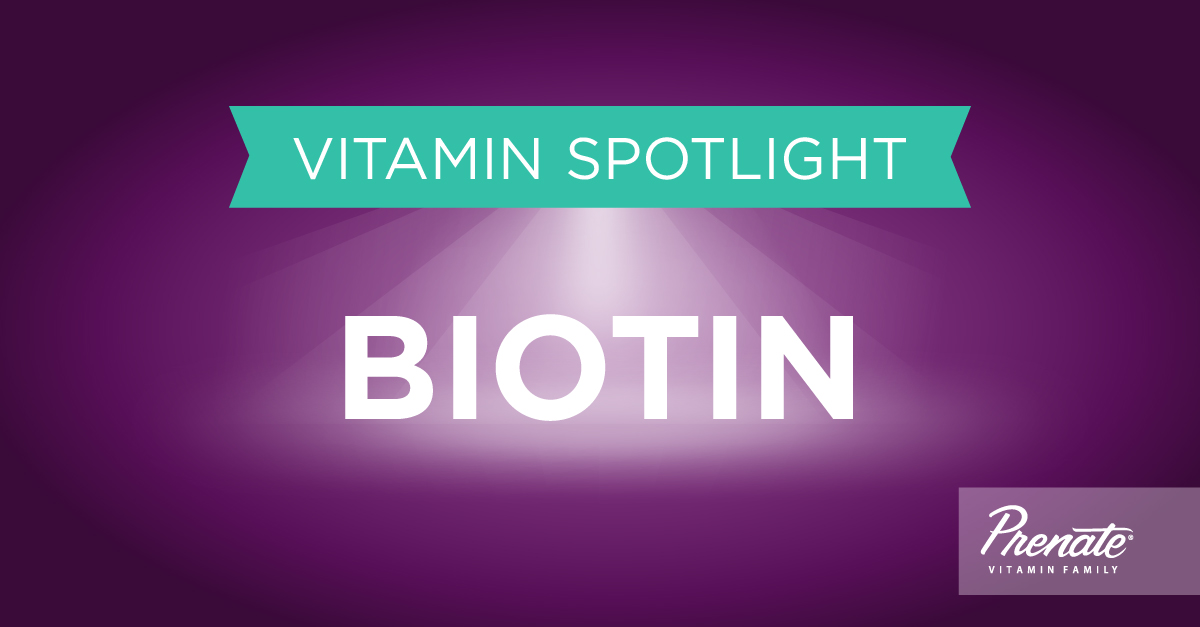Vitamin Spotlight: Biotin
January 27, 2016
Biotin, also referred to as vitamin B7 or vitamin H, is an important micronutrient. It is a water-soluble B-vitamin, which means that is does not remain in the body long.2 Because of its water-solubility, any excess is excreted from the body naturally.2 Interestingly, bacteria in the large intestine are able to synthesize biotin, although the health benefits of biotin from the intestinal microbes is not known.1
What are the Benefits of Biotin?
Biotin helps convert food (carbohydrates, fats and proteins) into fuel for our bodies. Research is ongoing, but some evidence suggests that biotin plays a role in reducing thin, splitting or brittle toe and fingernails and hair.2
Aside from assisting with metabolizing foods into fuel and energy for our bodies, biotin plays a unique role for pregnant women and is important for embryonic growth.2
How Much Biotin Do You Need?
The Food and Drug Administration (FDA) recommends that pregnant or lactating women obtain 300 mcg of biotin each day.3 Because our bodies have the ability to recycle the biotin that’s already been used, biotin deficiencies are less common. However, the increased nutritional demands of a growing baby can cause lower levels of biotin in pregnant women.
Which Foods Contain Biotin?
Biotin is found naturally in a wide variety of food. However, only a few foods contain high levels of biotin, including peanuts, egg yolks, swiss chard and a few other leafy green vegetables.2
Prenatal Vitamins with Biotin
The Prenate® Vitamin Family offers nutritional support for mothers and their babies for every step of pregnancy and after delivery. Ask your doctor if a Prenate® Vitamin is right for you. For your convenience we’ve provided links to the prenatal vitamins with biotin that the Prenate® Vitamin Family offers:
- Prenate® Pixie
- Prenate Mini®
- Prenate® Enhance
- Prenate® Restore
- Prenate® Chewable
- Prenate Elite®
- Prenate Essential®
You Are About To Leave This Website
By clicking continue, this link will take you to a website to which Alora Pharmaceuticals Policies & Terms of Use do not apply. Alora and its subsidiaries do not control the content or accuracy of third-party websites and assume no responsibility for their use.















